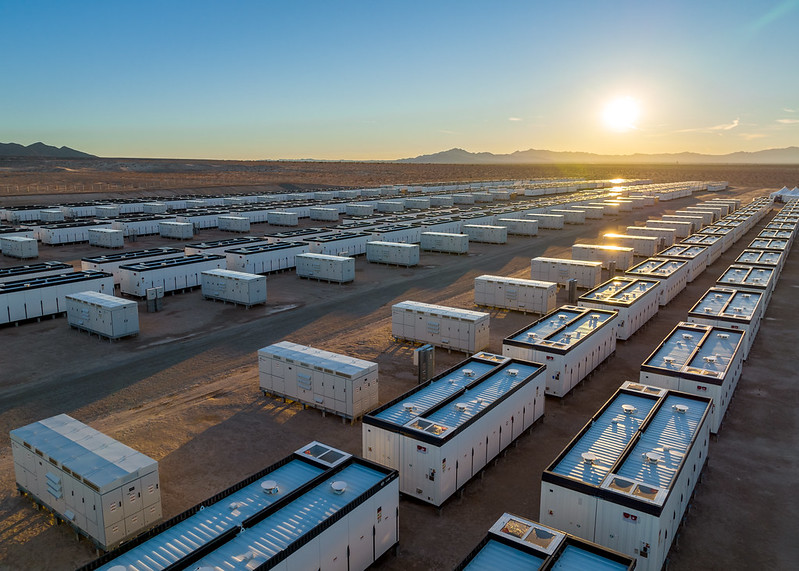Tenders
Battery storage deployment in Canada kicks into gear
The deployment of battery energy storage systems (BESS) in Canada is picking up the pace, with the announcement of a 705 MWh battery storage system delivery to Nova Scotia by Canadian Solar’s e-STORAGE and various other projects in provinces across the country. However, this surge cannot come quickly enough says Energy Storage Canada.

By
Blathnaid O’Dea, Marija Maisch
Jul 08, 2024

BESS deployment is on the rise in Canada. | Image: Bureau of Land Management California via Flickr
Canadian Solar’s e-STORAGE has secured a contract from Nova Scotia Power to develop the first grid-scale battery energy storage projects across three locations in Nova Scotia, Canada.
The projects, totaling 150 MW / 705 MWh DC and located in Bridgewater, Waverley, and White Rock, will play a major role in enhancing the grid reliability and stability, while contributing to provincial and federal targets of achieving 80% renewables by 2030.
Construction will be completed by the end of 2026, and the first site expected to be operational in 2025. e-STORAGE will provide comprehensive engineering, procurement, and construction (EPC) services along with long-term service agreements (LTSA).
Peter Gregg, President of Nova Scotia Power, said: “We look forward to collaborating with communities and project partners to ensure these projects provide the most cost-effective value to our customers.
Elsewhere, the Canadian province of Saskatchewan’s first utility-scale BESS project came online last week. The construction of the 20 MW facility began in 2022, and it was a Canadian community effort.
Canada’s On Power provided the BESS’ equipment while local utilities business SaskPower employed contractors to complete the installation onsite. The BESS is located at SaskPower’s Fleet Street substation in Regina, which is the capital city of Saskatchewan. The Canadian government supplied approximately $13 million of the project’s total $34 million cost.
“The addition of battery storage will enable SaskPower to better respond to the fluctuating demands of our electrical grid,” said Dustin Duncan, the minister responsible for SaskPower.
Rupen Pandya, SaskPower’s president and CEO said the company was pleased to be adding battery storage as another tool to help it provide power to its customers. Pandya hinted at the possibility for more BESS work if the Regina BESS is a success.
“The experience we gain from operating our first BESS will help us determine the potential for more battery energy storage in the future,” he added.
The project coming online is a significant development for Saskatchewan, which hopes to reach net-zero emissions 15 years later than the national Canadian target of 2035.
Elsewhere in Canada, other BESS-related advancements have been pouring in. In May, the government of Ontario completed the largest battery storage procurement in Canadian history. It secured 2,195 MW from ten projects ranging in size from 9 MW to 390 MW.
On July 4, ESS News reported that homeowners and business owners in the Canadian province of British Columbia will be incentivized to install BESS and rooftop solar, thanks to a rebates scheme operated by local electric utilities company, B.C Hydro.
Nationally, Canada’s battery storage capacity has been increasing steadily. According to recent figures from S&P Global, the country’s total installed capacity has surged from 11 MW in 2016 to around 92 MW in 2023.
Projects that are planned or under construction for 2024 could bring Canada’s total battery storage capacity up to 559 MW. By 2028, that could rise to 4,177 MW, a 45-fold increase from 2023 figures, the Canadian Climate Institute finds.
But the energy storage revolution is needed in Canada. The organization Energy Storage Canada has projected that the country will require between 8,000 and 12,000 MW of energy storage capacity by 2035 if it is to achieve its net-zero goal.
pv-magazine-usa.com |





